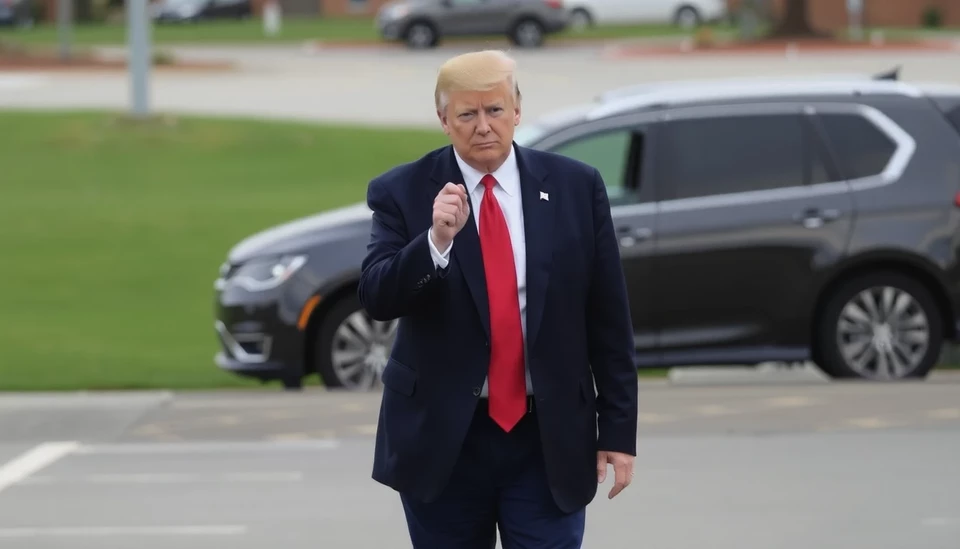
Former President Donald Trump is intensifying his efforts to abolish tax credits for electric vehicles (EVs), creating significant political challenges for Republican lawmakers representing states where the automotive industry and EV market thrive. This push comes as part of Trump's broader strategy to redefine his political platform ahead of the upcoming 2024 presidential election.
A recent analysis reveals that many Republican representatives are caught in a tight spot—supporting Trump's agenda could alienate their constituents and local industries thriving on green technology and electric vehicle innovations. This situation is particularly pronounced in states such as Michigan, Texas, and Ohio, where the automotive workforce relies heavily on the success and expansion of EVs.
The proposed elimination of EV tax credits, which were designed to accelerate the adoption of electric vehicles and reduce carbon emissions, has drawn criticism not just from Democrats but also from within the GOP. Local officials and business leaders in these key states argue that gutting these incentives would undermine economic growth and hinder the United States’ efforts to compete with global leaders in EV technology.
Lawmakers supporting the continued existence of the EV tax credits emphasize the importance of these benefits for the middle class, enabling consumers to afford the transition to electric vehicles, which can be cost-prohibitive without government assistance. The tax credits, which can be as high as $7,500, have played a crucial role in making EVs a more attractive option for consumers. With rising gas prices and growing environmental concerns, the demand for electric cars has surged, leading to a positive outlook for car manufacturers adapting to these market shifts.
Conversely, Trump's staunch opposition to these tax credits stems from his long-standing skepticism towards what he terms "government handouts." He argues that these incentives distort market dynamics and give an unfair advantage to electric vehicle manufacturers, like Tesla and others, at the cost of traditional auto manufacturers and energy businesses dependent on fossil fuels. Trump's outlined vision aims to promote a more oil and gas-centered economy, echoing his administration's policies that favored fossil fuel production and exploration.
The Republican Party is thus faced with a dilemma: pursue Trump's agenda, which may please the former president's base, or adhere to the interests of their constituents—consumers, workers, and businesses that benefit from the EV sector. The stakes are high, as lawmakers prepare for an election cycle that could reshape the political landscape across various congressional districts.
As this debate evolves, the long-term implications of either side’s victory on environmental policies, energy independence, and the economy at large remain to be seen. Political analysts suggest that the resolution of this conflict within the GOP will be indicative of broader trends affecting American politics and the future of sustainable energy initiatives.
With the deadline for campaign funding and statements approaching, GOP leaders are urged to navigate this turbulent issue with care—as the upcoming decisions will resonate beyond the immediate political climate and into the years of policy and economic impact that follow.
As the battle over the future of electric vehicle incentives rages on, the resolution could alter not only individual political careers but also the broader context of U.S. energy policy and its commitment to green technologies amidst an evolving global market.
#Trump #EVs #ElectricVehicles #RepublicanParty #TaxCredits #Politics #GreenTechnology #2024Election #EnergyPolicy
Author: John Harris




